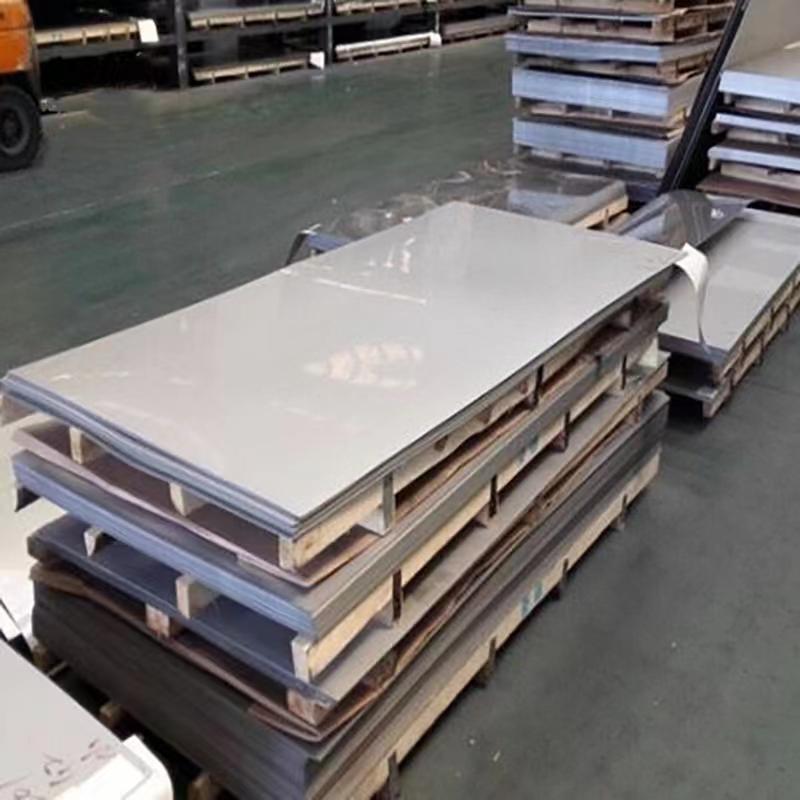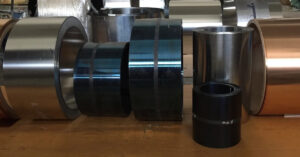What is Shim Sheet Thickness?
Shim sheets, also known as shim stock or shim plates, are versatile pieces of material used in various industries and applications. These thin, flat sheets play a crucial role in adjusting and fine-tuning the clearance or spacing between components. Shim sheets are available in a range of thicknesses, which can vary significantly based on the intended use. In this blog, we’ll explore what shim sheet thickness is, why it matters, and how to choose the right thickness for your specific needs.
Understanding Shim Sheet Thickness: A Comprehensive Guide
Shim sheet thickness refers to the measurement of the material’s thickness, which is typically uniform across the entire sheet. Shim sheets are designed to be thin and flat, but the actual thickness can vary depending on the specific application. Thickness is often measured in a unit of length, such as millimeters (mm) or inches (in). Common thicknesses for shim sheets can range from as thin as 0.001 inches (0.0254 mm) to a few millimeters, depending on the material and intended use.
Why Does Shim Sheet Thickness Matter?
Shim sheet thickness is a critical factor in determining the suitability of the shim for a particular application. Here are some key reasons why shim sheet thickness matters:
1. Precision Adjustment: Shim sheets are used to fine-tune the clearances and tolerances between components. The thickness of the shim determines the amount of adjustment that can be made. A thicker shim sheet will provide a larger adjustment range, while a thinner shim sheet offers more precise, smaller adjustments.
2. Load-Bearing Capacity: The thickness of the shim also affects its load-bearing capacity. Thicker shims can support heavier loads and are better suited for applications where weight or pressure needs to be distributed evenly.
3. Material Compatibility: The choice of shim material can influence its thickness requirements. Some materials may need to be thicker to provide the necessary strength and durability for specific applications. 4. Space Constraints: In applications with limited space, a thinner shim may be required to ensure that the shim can fit within the designated area without causing interference.
How to Choose the Right Shim Sheet Thickness?
Selecting the correct shim sheet thickness is crucial to ensuring the success of your project or application. Here’s a step-by-step guide to help you choose the right thickness:
1. Identify the Application: Determine the specific purpose of the shim sheet. Is it for adjusting the alignment of machinery, compensating for wear, or addressing thermal expansion? Understanding the application’s requirements is the first step.
2. Calculate the Required Adjustment: Measure the gap or clearance that needs to be adjusted. Consider the level of precision required and any load-bearing needs.
3. Material Selection: Choose the appropriate material for your shim sheet. Materials like steel, brass, stainless steel, and plastic are common choices. The material’s strength and durability will impact the required thickness.
4. Consult a Shim Chart: Many manufacturers and suppliers provide shim charts that recommend the appropriate thickness based on the load, gap, and material. These charts can be a valuable resource.
5. Testing and Validation: Always test the selected thickness in your application before finalizing your choice. This helps ensure that the shim performs as expected.


Conclusion
Shim sheet thickness is a crucial factor in achieving precise adjustments and maintaining the integrity of various mechanical and industrial systems. Understanding the requirements of your specific application, material compatibility, and the need for precision will guide you in selecting the right shim sheet thickness. By carefully considering these factors, you can ensure that your shim sheets effectively serve their intended purpose, contributing to the success of your projects and applications.
Bhansali Metalloys Inc is one of the leading Manufacturer, Exporters, and Suppliers of High Quality Shim Sheet all over in India. We are Manufacturer, Supplier and Dealer of various types of Fasteners such as Bolts, Nuts, Screws, Washers, Threaded Rods and many more. We are SS Shim Sheet Manufacturer in India. These Bars are available in different grades and materials. We are Stainless Steel Shim Sheet Manufacturer, Supplier, Dealer, and Exporter in India. We are Shim Sheet Supplier in India. Contact Us +919152160158 or email to info@bhansalimetalloysinc.com for Shim Sheets price list.
For our full list of products that we offer check out our website here. Be sure to join the conversation in our Facebook, Instagram, Twitter, LinkedIn Group.
Each Stainless Steel Shim Sheet is otherwise designed based on the characteristics of the applying and additionally the pressure. Consequently, different industries use different SS Shim Sheet. We also produce customized Shim Sheet Products at our factory as per our client’s requirements. For any types of Shim Sheet Price List Call on +91 9152160158 or drop an Email to info@bhansalimetalloysinc.com | exportbmi32@gmail.com
We Export Across the Globe
Exports in Asia Afghanistan, Armenia, Azerbaijan, Bangladesh, Bhutan, Brunei Darussalam, Cambodia, China, Georgia, Hong Kong, India, Indonesia, Japan, Kazakhstan, South Korea, Kyrgyzstan, Laos, Macao, Malaysia, Maldives, Mongolia, Myanmar (ex-Burma), Nepal, Pakistan, Phillipines, Singapore, Sri Lanka (ex-Ceilan), Taiwan, Tajikistan, Thailand, Timor Leste (West), Turkmenistan, Uzbekistan, Vietnam.
Export to Africa Burundi, Comoros, Djibouti, Eritrea, Ethiopia, Kenya, Madagascar, Malawi, Mauritius, Mayotte, Mozambique, Reunion, Rwanda, Seychelles, Somalia, Tanzania, United Republic of Uganda, Zambia, Zimbabwe, Angola, Cameroon, Central African Republic, Chad, Congo (Brazzaville), Congo, Democratic Republic of the Equatorial Guinea, Gabon, Sao Tome and Principe, Algeria, Egypt, Libyan Arab Jamahiriya, Morroco, South Sudan, Sudan, Tunisia, Western Sahara, Botswana, Lesotho, Namibia, South Africa, Swaziland, Benin, Burkina Faso, Cape Verde, Cote d’Ivoire (Ivory Coast), Gambia, Ghana, Guinea, Guinea-Bissau, Liberia, Mali, Mauritania, Niger, Nigeria, Saint Helena, Senegal, Sierra Leone, Togo.
Export to America Anguilla, Antigua and Barbuda, Aruba, Bahamas, Barbados, Bonaire, Saint Eustatius and Saba, British Virgin Islands, Cayman Islands, Cuba, Curaçao, Dominica, Dominican Republic, Grenada, Guadeloupe, Haiti, Jamaica, Martinique, Monserrat, Puerto Rico, Saint-Barthélemy, St. Kitts and Nevis, Saint Lucia, Saint Martin, Saint Vincent and the Grenadines, Sint Maarten, Trinidad and Tobago, Turks and Caicos Islands, Virgin Islands (US), Belize, Costa Rica, El Salvador, Guatemala, Honduras, Mexico, Nicaragua, Panama, Argentina, Bolivia, Brazil, Chile, Colombia, Ecuador, Falkland Islands (Malvinas), French Guiana, Guyana, Paraguay, Peru, Suriname, Uruguay, Venezuela, Bermuda, Canada, Greenland, Saint Pierre and Miquelon, United States.
Export to the Middle East Bahrain, Iraq, Iran, Israel, Jordan, Kuwait, Lebanon, Oman, Palestine, Qatar, Saudi Arabia, Syria, United Arab Emirates, Yemen.




